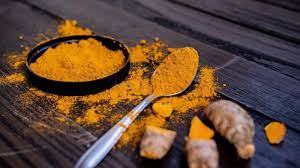Turmeric is a versatile and powerful spice that has long been used for its medicinal properties. Its anti-inflammatory, antioxidant, and antiseptic properties make it an ideal remedy for common skin issues such as acne scars, eczema, and psoriasis. In this blog post, we will look at how turmeric can be beneficial for these skin conditions, and how to best incorporate it into your skin care routine.
Turmeric can help reduce the appearance of acne scars
Turmeric is an ancient spice with many health benefits, but it has also been used for centuries in skin care. In recent years, turmeric has been gaining popularity as an effective treatment for acne scars, eczema, and psoriasis.
Turmeric contains curcumin, a powerful antioxidant that helps reduce inflammation. This can help reduce the appearance of acne scars and other skin conditions. Additionally, curcumin helps to heal the skin by increasing collagen production and repairing the skin cells.
When using turmeric for acne scars, it’s important to use it correctly. You can make a paste by mixing turmeric powder with either water or milk. Once the paste is made, apply it directly to the affected area and leave it on for 10-15 minutes before rinsing it off. You can also add other ingredients to the paste such as honey or yogurt to improve its effectiveness.
For eczema and psoriasis, you can mix turmeric with honey or olive oil to create a paste. Then, apply the paste directly to the affected area and leave it on for 10-15 minutes before rinsing off.
Turmeric can be a great addition to your skin care routine, as it has been shown to reduce inflammation, stimulate collagen production, and even help reduce the appearance of acne scars. However, it is important to speak with a dermatologist before using turmeric if you have any skin condition or allergies.
Turmeric can help soothe eczema
Turmeric is a powerful, natural remedy that has been used in traditional Ayurvedic medicine for centuries. It is widely known to have many health benefits, but it also has wonderful properties when it comes to skin care. Turmeric can help soothe and reduce symptoms of common skin issues like acne scars, eczema, and psoriasis.
When it comes to eczema, turmeric is believed to reduce inflammation, redness, and itching. This is because the active ingredient in turmeric is curcumin, which has strong anti-inflammatory and anti-allergic properties. Studies have shown that when applied topically, it can help reduce inflammation of the skin, as well as help relieve the itchiness and irritation associated with eczema.
To use turmeric for eczema, you can make a simple paste from turmeric powder and water or mix it with aloe vera gel. Apply it directly to affected areas for about 10-15 minutes before washing it off with warm water. You can also make a facial mask by mixing 1 teaspoon of turmeric with some honey and applying it to your face for 10-15 minutes.
Turmeric is a gentle yet effective remedy that can help reduce symptoms of eczema. Try adding it to your skin care routine and see if it works for you!
Turmeric can help reduce the appearance of psoriasis
Turmeric is a powerful spice with many medicinal benefits, and it can also be beneficial for skin care. It has been used for centuries in traditional Indian and Chinese medicine for its anti-inflammatory, antioxidant, and antiseptic properties.
Turmeric has been found to be effective in reducing the appearance of psoriasis, eczema, and acne scars. The active ingredient in turmeric, curcumin, has anti-inflammatory and antibacterial properties that help reduce redness, swelling, and irritation. In addition, it also has antifungal and antiviral properties, which can help prevent infection.
Studies have shown that using turmeric topically can reduce inflammation and itching associated with psoriasis. Additionally, turmeric may help fade acne scars and reduce the appearance of dark spots and age spots.
When used regularly, turmeric can be a great natural remedy to help improve the appearance of your skin. It’s important to note, however, that turmeric can stain the skin if not applied correctly. Therefore, it’s important to make sure you use a mild soap or cleanser before applying turmeric to your skin. Additionally, it’s best to test a small area of skin first before applying it to a larger area.
If you’re looking for a natural way to improve the look of your skin, give turmeric a try! Just remember to take proper precautions when applying it to your skin to avoid staining.
Turmeric can help brighten your skin
Turmeric is becoming increasingly popular for its anti-inflammatory and antioxidant properties, which are beneficial for many skin conditions. This ancient spice can be used to treat acne scars, eczema, psoriasis, and other skin issues, leading to brighter and healthier looking skin.
Turmeric has been used as a natural remedy for centuries. It contains compounds that have powerful anti-inflammatory and antioxidant effects, which can help reduce inflammation and decrease the risk of further damage from free radicals. The active ingredient in turmeric is curcumin, which has been studied extensively for its ability to reduce inflammation.
When applied to the skin, turmeric can help to reduce the appearance of acne scars, eczema, psoriasis, and other skin irritations. It also helps to brighten the skin and reduce discoloration. Many people have found that using turmeric in combination with other natural ingredients can be even more effective than using it alone. For example, mixing turmeric with honey or yogurt can provide a gentle exfoliation that can help to reduce the appearance of dark spots.
If you are looking for an all-natural way to improve your skin’s health and appearance, consider adding turmeric to your skin care routine. Its anti-inflammatory and antioxidant properties can help to soothe skin irritations and reduce the appearance of acne scars, eczema, and psoriasis.
Turmeric is a versatile and powerful spice that has long been used for its medicinal properties. Its anti-inflammatory, antioxidant, and antiseptic properties make it an ideal remedy for common skin issues such as acne scars, eczema, and psoriasis. In this blog post, we will look at how turmeric can be beneficial for these skin conditions, and how to best incorporate it into your skin care routine.
Turmeric can help reduce the appearance of acne scars
Turmeric is an ancient spice with many health benefits, but it has also been used for centuries in skin care. In recent years, turmeric has been gaining popularity as an effective treatment for acne scars, eczema, and psoriasis.
Turmeric contains curcumin, a powerful antioxidant that helps reduce inflammation. This can help reduce the appearance of acne scars and other skin conditions. Additionally, curcumin helps to heal the skin by increasing collagen production and repairing the skin cells.
When using turmeric for acne scars, it’s important to use it correctly. You can make a paste by mixing turmeric powder with either water or milk. Once the paste is made, apply it directly to the affected area and leave it on for 10-15 minutes before rinsing it off. You can also add other ingredients to the paste such as honey or yogurt to improve its effectiveness.
For eczema and psoriasis, you can mix turmeric with honey or olive oil to create a paste. Then, apply the paste directly to the affected area and leave it on for 10-15 minutes before rinsing off.
Turmeric can be a great addition to your skin care routine, as it has been shown to reduce inflammation, stimulate collagen production, and even help reduce the appearance of acne scars. However, it is important to speak with a dermatologist before using turmeric if you have any skin condition or allergies.
Turmeric can help soothe eczema
Turmeric is a powerful, natural remedy that has been used in traditional Ayurvedic medicine for centuries. It is widely known to have many health benefits, but it also has wonderful properties when it comes to skin care. Turmeric can help soothe and reduce symptoms of common skin issues like acne scars, eczema, and psoriasis.
When it comes to eczema, turmeric is believed to reduce inflammation, redness, and itching. This is because the active ingredient in turmeric is curcumin, which has strong anti-inflammatory and anti-allergic properties. Studies have shown that when applied topically, it can help reduce inflammation of the skin, as well as help relieve the itchiness and irritation associated with eczema.
To use turmeric for eczema, you can make a simple paste from turmeric powder and water or mix it with aloe vera gel. Apply it directly to affected areas for about 10-15 minutes before washing it off with warm water. You can also make a facial mask by mixing 1 teaspoon of turmeric with some honey and applying it to your face for 10-15 minutes.
Turmeric is a gentle yet effective remedy that can help reduce symptoms of eczema. Try adding it to your skin care routine and see if it works for you!
Turmeric can help reduce the appearance of psoriasis
Turmeric is a powerful spice with many medicinal benefits, and it can also be beneficial for skin care. It has been used for centuries in traditional Indian and Chinese medicine for its anti-inflammatory, antioxidant, and antiseptic properties.
Turmeric has been found to be effective in reducing the appearance of psoriasis, eczema, and acne scars. The active ingredient in turmeric, curcumin, has anti-inflammatory and antibacterial properties that help reduce redness, swelling, and irritation. In addition, it also has antifungal and antiviral properties, which can help prevent infection.
Studies have shown that using turmeric topically can reduce inflammation and itching associated with psoriasis. Additionally, turmeric may help fade acne scars and reduce the appearance of dark spots and age spots.
When used regularly, turmeric can be a great natural remedy to help improve the appearance of your skin. It’s important to note, however, that turmeric can stain the skin if not applied correctly. Therefore, it’s important to make sure you use a mild soap or cleanser before applying turmeric to your skin. Additionally, it’s best to test a small area of skin first before applying it to a larger area.
If you’re looking for a natural way to improve the look of your skin, give turmeric a try! Just remember to take proper precautions when applying it to your skin to avoid staining.
Turmeric can help brighten your skin
Turmeric is becoming increasingly popular for its anti-inflammatory and antioxidant properties, which are beneficial for many skin conditions. This ancient spice can be used to treat acne scars, eczema, psoriasis, and other skin issues, leading to brighter and healthier looking skin.
Turmeric has been used as a natural remedy for centuries. It contains compounds that have powerful anti-inflammatory and antioxidant effects, which can help reduce inflammation and decrease the risk of further damage from free radicals. The active ingredient in turmeric is curcumin, which has been studied extensively for its ability to reduce inflammation.
When applied to the skin, turmeric can help to reduce the appearance of acne scars, eczema, psoriasis, and other skin irritations. It also helps to brighten the skin and reduce discoloration. Many people have found that using turmeric in combination with other natural ingredients can be even more effective than using it alone. For example, mixing turmeric with honey or yogurt can provide a gentle exfoliation that can help to reduce the appearance of dark spots.
If you are looking for an all-natural way to improve your skin’s health and appearance, consider adding turmeric to your skin care routine. Its anti-inflammatory and antioxidant properties can help to soothe skin irritations and reduce the appearance of acne scars, eczema, and psoriasis.



